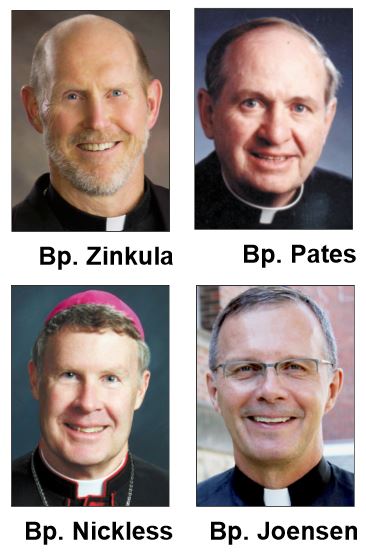 After a four-hour debate April 13, the Iowa House passed Senate File 494, a bill that imposes some of the harshest restrictions on the Supplemental Nutrition Assistance Program (SNAP) in the country. The bill awaited Governor Kim Reynolds’s signature at press time. Five Republicans joined Democrats in opposing the bill, the Iowa Catholic Conference (ICC) reported April 17. The measure passed 58-41.
After a four-hour debate April 13, the Iowa House passed Senate File 494, a bill that imposes some of the harshest restrictions on the Supplemental Nutrition Assistance Program (SNAP) in the country. The bill awaited Governor Kim Reynolds’s signature at press time. Five Republicans joined Democrats in opposing the bill, the Iowa Catholic Conference (ICC) reported April 17. The measure passed 58-41.
“SF 494 makes significant changes to income verification systems for Medicaid and food stamps (SNAP) in Iowa. It’s our concern that the new requirements create unnecessary hurdles and will lead to some eligible persons losing benefits. The bishops of Iowa signed an interfaith letter opposing the bill,” said ICC Executive Director Tom Chapman. Here is the letter:
Dear Governor Reynolds, Lt. Governor Gregg, and Iowa Legislative Leaders,
We, the undersigned leaders from across the religious spectrum, oppose Senate File 494 on moral, religious, and humanitarian grounds. Feeding the poor is a universal value shared by all major faith traditions and all cultures. As such, we stand together to speak the truth in the face of many harmful, pervasive myths about public assistance and our neighbors in need.
Our neighbors need our help now more than ever. Food pantry usage is at an all time high as families struggle with rising costs and low wages. The vast majority (85%) of households receiving SNAP have someone working in them. Two-thirds of Iowans who benefit from SNAP are children, people with disabilities, and older Iowans. The Supplemental Nutrition Assistance Program (SNAP) is an efficient and effective way to address food insecurity. SNAP is a federal cash benefit that allows Iowans to purchase food their families need at local grocery stores. Every dollar of SNAP generates $1.54 of local economic benefit. Iowa receives $42 million federal SNAP dollars each month. State administrative costs have not increased in years and fraud is nearly non-existent. The Iowa Health and Human Services Department has reformed their processes to bring their error rate (underpayments and overpayments of benefits) below the national average.
SNAP is already too difficult to access and does not provide enough support. Iowans cannot qualify for SNAP unless they make less than 160% of the Federal Poverty Level (FPL), which amounts to $39,997 for a single parent with two children. According to the United Way’s ALICE Report, a household needs to make 200% to 250% of FPL just to survive — leaving too many of our neighbors struggling to make ends meet but still unable to qualify. The average benefit provides just $1.78 per meal, and the minimum SNAP benefit people receive is a meager $23 per month. SNAP enrollment in Iowa is at a 14-year low.
This legislation will prevent people in need from accessing assistance. Many Iowa organizations and programs that work with low-income and vulnerable populations have spoken against this bill because it creates unnecessary obstacles to food and health care. Pennsylvania discontinued a similar program after just three years due to the significant expense and harm: 14% of qualifying SNAP recipients were removed because they could not complete paperwork requirements.
Private charities cannot address the issue of food insecurity alone. According to Bread for the World, federal nutrition programs like SNAP provide more than 19 times the amount of food than private charitable sources like food banks and food pantries. Should SF 494 pass, already stressed feeding charities will be overwhelmed. For generations, interfaith leaders have stood shoulder to shoulder, united to meet the needs of their neighbors. Despite many differences, the people of Iowa share a vision for a state government that responds to challenges with effective solutions. We have a history of welcome and compassion for those in need. We seek a future where everyone has the nutritious food they need to live and thrive. We call on our legislators to craft legislation that reflects our state’s generosity and compassion.
Among the 209 signatories are Iowa’s bishops, Bishop Thomas Zinkula, Diocese of Davenport; Bishop William M. Joensen, Diocese of Des Moines; Bishop R. Walker Nickless, Diocese of Sioux City; and Bishop Richard Pates, apostolic administrator of the Archdiocese of Dubuque.











